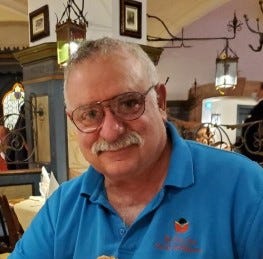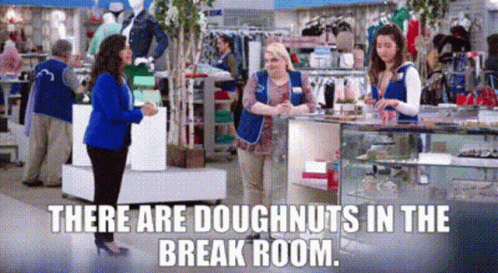This morning I zoomed past an Instagram ad that suggested, rather rudely, that because of my age (Thanks Meta!), I’m something of a Luddite when it comes to using tech in the business world. This isn’t new, I’ve seen it before, but it’s an odd advertising come-on if they were hoping I’d click on their link. I suppose by declaring that I’m not a Luddite, I may be proving that I am. But I certainly don’t think of myself that way.
In a recent post, Scott Galloway of Section 4 discussed the potential growth of AI in our lives and how it will most likely not, in his opinion, lead to a decline in jobs or meaningful work. He prefaced his opinion with a quick history of who the “Luddites” were and what, exactly, they were trying to accomplish with their movement. Essentially, they didn’t want to lose their careers and craft.
I’m no Luddite. As I’ve recently mentioned, I like my tech. It’s amazing to me how so many of my personal and professional devices communicate with each other and, when they work properly, make my life so much better. It is incredible to me the amount of data I can quickly download, sort and then use to design campaigns that could make my clients more efficient, work better, learn more about their audiences.
But my concern remains. Will advances in tech outstrip our society’s ability to adapt to how the tech will disrupt our lives? Will the owners of the tech use its ability to the benefit of the public? Or will it only be used to enrich themselves and their investors?
The Luddites were afraid of the technology and for good reason. It stripped them of their ability to have meaningful work. Their craft was no longer relevant. Elizabethan England was not concerned with what happened to them. It wasn’t the first time in history this happened and we’ve seen many instances of this happening in the 20th and 21st centuries (Hi overused buggy whip analogies!)
Can our society in the 21st century do better as new tech is introduced?
Five Questions With Bo Sacks
Once a month we’ll introduce someone from the magazine media world to you and ask them five questions about their history, their work, and what they think the future of the magazine world might be. The goal is for you to get to know more about some of the people who make this broad and vital industry tick, spark a conversation and share some knowledge.
This month we’re talking with Bob Sacks, a magazine professional who’s experienced an incredible career arc. You may know him from the daily BoSacks Newsletter. Perhaps your company has hired his consultancy, the Precision Media Group. Or maybe you’ve seen him at an industry event.
In his own words, who is Bo Sacks and why should we know him?
“I’ve been a veteran of the printing and publishing industry since 1972 when two partners and I started a local newspaper called The Express in the NYC suburbs. After several years in the alternative press, publishing newspapers in New York and Tucson, AZ, I went on to the early years of High Times Magazine. High Times Magazine was my graduate class in magazine production and distribution. It was the best training ground I could have possibly received.
Since then, I have held positions that include Publisher, Editor, Freelance Writer, Director of Manufacturing and Distribution, Senior Sales Manager, Circulator, Chief of Operations, Pressman, Cameraman, Lecturer, and Developer of website companies.
Today my company, The Precision Media Group, does private consulting and publishes "Heard on the Web: Media Intelligence", a daily e-newsletter that delivers pertinent industry news to a diverse, worldwide publishing community of over 16,750 media industry leaders. To the best of my knowledge, it is the longest-running e-newsletter in the world.
Here are the five questions and answers from our conversation:
#1: How did you get involved in the magazine publishing business? Did you have any specific training that prepared you for your first job in the industry?
I knew nothing about newspapers or magazines when I started publishing them. The old adage of learning on the job couldn’t have been more accurate for me. The truth is I made it all up, scrambling on the fly and to the best of my ability, to learn and use the rarely seen and sometimes under appreciated tool of “common sense” to solve problems and get answers. That is an early secret I had, and I’ve used for all of my career. There is always a solution. Always!
You just can’t be afraid to say you don’t know, so ask everyone till you get the answer. The vendors of magazines have always held an abundance of valuable problem-solving information, and they are always ready to share and teach. That is what happened to me. My vendors were my graduate publishing professors.
#2: What are some of the big industry challenges we should see this year? What do you think the big challenges will be over the next few years?
First, I have to ask what industry? The Publishing Industry? The Magazine Industry? In a digital world the two are no longer synonymous.
As Omar Khayyám said:
“The Moving Finger writes; and, having writ,
Moves on: nor all thy Piety nor Wit
Shall lure it back to cancel half a Line,
Nor all thy Tears wash out a Word of it.”
On the whole, the magazine/publishing industry has moved on. There are still plenty of print-only publications and many do quite well. But the industry has been facing the same challenges for over 12 years, and there is no end to the process of the ever-shifting sands of digital media, the ongoing decline in print readership and continued loss of advertising revenue. Not to mention the ever-increasing costs of manufacturing and distribution. A stressed-out inconsistent supply chain is no help to anyone large or small.
The last challenge is the need to continuously adapt to new technologies and changing consumer habits. Not everyone has the skillset or the desire to continuously adapt to changing conditions. For me I thrive on change, action and problem solving.
#3: Do print magazines have much of a future over the next decade? Will there be print magazines in the next twenty years?
The simple answer is yes, with some provisos. The print magazine world as a whole is diminishing.
So, what? No publisher should care about how the industry is doing; they should only focus on how their title is performing. There are so many examples of print titles that are doing fantastically well. Our State Magazine, a regional title from North Carolina, is always about 264 pages and filled with great edit and tons of print advertisers. I’m confident Our State and many other niche titles will be around in twenty years or longer. The luxury magazine sector is also going gangbusters with no end in sight. I’ve been pointing out for years that the magazines industry has to move on from being a commodity to a luxury product.
Find your niche, do it better than anyone else and make sure you have information that can’t be found anywhere else. See, success is that simple.
#4: If you hadn't had a career in the magazine business, what would you have wanted to do?
As a liberal arts major in college, I had no idea what I wanted to do until starting my first newspaper. Falling into the magazine production cycle was a God send to me. I had the natural instincts to deal with daily crises and a desire to learn everything first about my job functions and then to try to understand all the other departments and how they were interrelated. I can’t imagine doing anything else as a career, although I might have made a good carpenter or plumber because I’m very mechanically inclined. Not a bad asset to have for a production person.
#5: Did you have a mentor when you started out in the business and if so, what was a good piece of advice that they gave you?
Yes, I was mentored by my best friend and first business partner Andy Kowl, which surprised me, and who is still in the business. As I said before, I was a liberal arts major with literally no real business experience. Andy, whom I have known since 7th grade, surprised me with his natural business acumen. I had none and he had it in abundance.
I don’t think he intentionally mentored me; he was just being Andy. I watched in awe at my friend’s skillset. I watched and learned. He was the first person I heard who said business abhors a vacuum. I got that right away, and since then it has been to me all about unexpected opportunities.
If you’re not getting the BoSacks newsletter, you can subscribe to it here.
Your Moment of Magazine Zen!

I hope you enjoyed this newsletter. If you did so, please give it a boost by clicking “Like” and then subscribing. You’ll get a brand new release in your email in-box every Tuesday (Or sometimes Wednesday if things get a little crazy around here).
If you’ve got a question or comment, please drop me a line. You can always reach me at joe.berger@newsstandpros.com.
Want to find me on the social sites?
My Instagram link is here.
I’m now lodged at Post.News and you can find me here on this new app.
Every now and then I put on a suit and tie and comb my hair. Here’s my LinkedIn profile.
Yep, I’m still on Twitter. You can find me here, but I’m not spending a lot of time there.
I hope you have a great week filled with working tech, 20 minute meetings and tasty treats in the break room.





